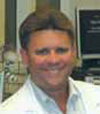Although data have been lacking with respect to the use of phytoestrogen-based products, some of these formulations may provide a level of effectiveness for a variety of patients.
Despite the botanical nature of these products, I counsel my patients that there is a potential for estrogen-like activity. Therefore, these products may carry some of the same risks as the estrogen they seek to avoid.
Dr. Bernick reports that he is a consultant for vitaWebMD.
New data make it easier to tailor HT

Camp Hill, Pa
I completed my ObGyn residency during the mid-1990s, at a time when it was common to begin almost every menopausal woman on HT. As data from the WHI trial and Heart and Estrogen/progestin Replacement Study (HERS) exploded in the media, a small percentage of my patients stopped taking their hormones immediately.4,5 The majority of my patients turned to me for interpretation of the studies and guidance on how they applied to their particular clinical scenario.
I believe that my patients are better served by having an extensive discussion of their general health and behavioral habits as a means of addressing their menopausal symptoms. I must admit, before the WHI and HERS trials, I gave this kind of counseling short shrift. Now, when I talk with patients, I find it easiest to discuss HT from a risk-benefit standpoint in light of the data to date. Before the WHI and HERS trials, I did not treat hysterectomized women any differently than those who had an intact uterus. Nor did I think in terms of initiating treatment in early versus late menopause or pay much attention to risk factors for breast cancer or heart disease. Now, we have data on these considerations that enable me to more accurately determine a woman’s unique risk-benefit profile as she contemplates HT. ACOG’s analysis and perspective have also helped.6
Once beyond this first level of discussion, if the patient elects to initiate HT, the focus shifts to “What dosage and for how long?” At her annual visit, we revisit “the numbers” and discuss how they apply to her case. Most important, I assess how HT is affecting her quality of life. I explain to my patients that the concept of the lowest dosage for the shortest duration is one we should embrace not only with HT but with all of their medications on a yearly basis.
Today, my patients run the spectrum of HT use. I have 80-year-old hysterectomized patients with a 30-year history of HT use who look at me pointedly and say, “You’re not gonna stop my hormones, are you?” And I have 52-year-old patients who proudly inform me that their symptoms are manageable without HT now that they have started yoga.
Dr. delRosario reports no relevant financial relationships.
More patients are declining HT

Kansas City, Mo
I routinely advise my patients about the increased risk of breast cancer and positive nodes when I prescribe estrogen-progestin HT, based on the recent publication from the WHI study.1 I tell them straight up that it is a defined risk, but short-term usage of HT for vasomotor symptoms may be acceptable, along with yearly mammograms. They are comfortable knowing the risks and are declining, in increasing numbers, to start or maintain HT.
Alternatives that I recommend are multivitamins and supplemental vitamin D and daily calcium for osteopenia prevention. I suggest using a serotonin reuptake inhibitor for vasomotor symptom control.
Dr. Schnee reports no relevant financial relationships.
Individualizing therapy is a priority

Long Branch, NJ
I doubt that any gynecologist in active practice has forgotten the day in July 2002 when the startling news about the WHI study broke. I remember clearly that I was inundated with questions from anxious women—as well as my residents—wondering about the immediate implications. Suddenly, what had been a panacea for menopausal vasomotor symptoms had become a deadly poison, and women wanted to know with certainty whether they would develop breast cancer.
Since that time, as small aliquots of new information have been published periodically, we have learned to look at HT in a new light. Not all the news is positive, and not all of it is negative—and we are certainly far from the last word on this controversy.
My practice with a Federally Qualified Health Care Center brings patients of different ethnic and racial groups to my office. Most of them (~55%) have Spanish as their primary language, and a significant minority (~30%) are English-speaking. My patients are generally not forthcoming about symptoms that they consider a “normal” part of menopause. I therefore question perimenopausal and menopausal women specifically about vasomotor symptoms and vaginal dryness and dyspareunia. The options I offer them depend on the most troubling symptoms.

